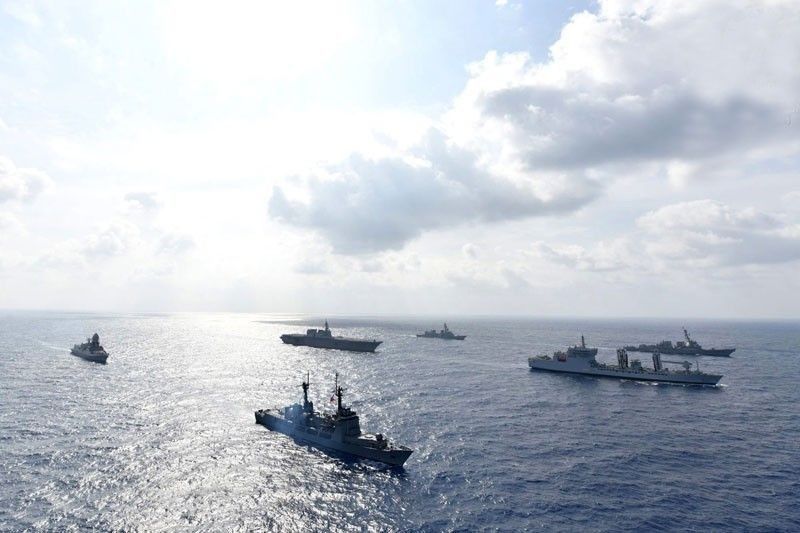Duterte to agencies: Monitor movement of foreign ships

MANILA, Philippines — President Duterte wants agencies to come up with mechanisms for monitoring the movements of foreign vessels passing through Philippine sea lanes in the light of numerous reports of unannounced entry of Chinese warships in the country’s territorial waters.
This was according to Cabinet Secretary Karlo Nograles who said “problems” would be avoided if movements of foreign ships in the country’s waters were constantly monitored.
“The President said all confirmed agencies should undertake measures to monitor the movement of foreign vessels. We have what we call the automated information system (AIS),” Nograles said in an interview yesterday with radio station dzBB.
“They should have coordination with us and should notify us,” he added.
Duterte has required foreign vessels passing through Philippine waters to notify or get clearance from authorities in advance “to avoid misunderstanding.” Malacañang has warned that the Philippines may respond in an “unfriendly manner” to incursions by foreign ships.
But Supreme Court Senior Associate Justice Antonio Carpio has said a coastal state cannot impose such requirement on foreign merchant vessels and warships exercising innocent passage through territorial sea or archipelagic waters. The United Nations Convention on he Law of the Sea (UNCLOS) said an innocent passage is “continuous and expeditious” and is “not prejudicial to the peace, good order, or security of the coastal state.”
“If we monitor them (foreign ships) and if they notify us, that system is better so we won’t have any problem,” Nograles said.
Nograles said the security, justice, and peace cluster of the Cabinet is pushing for the archipelagic sea lanes bill, which seeks to designate lanes where foreign merchant ships and warships could pass as well as enumerate protocols on innocent passage. He said under UNCLOS, coastal states should come up with laws defining code of conduct for innocent passage in archipelagic lanes.
“The archipelagic sea lanes bill of the security, justice, and peace cluster will clearly state who could traverse, where they could pass... and if they pass, they should just exercise innocent passage. They should not fish or conduct surveillance, conduct exploratory exploration or exploitation of any of our resources,” Nograles said.
“What is important here is foreign vessels passing through our sea lanes should not turn off their AIS,” he added.
Some 150 representatives from eight different countries, including the Philippines and the United States, yesterday took part in the Southeast Asia Cooperation and Training (SEACAT) exercise conducted in the West Philippine Sea (WPS) near Subic Bay, Zambales.
- Latest
- Trending





























